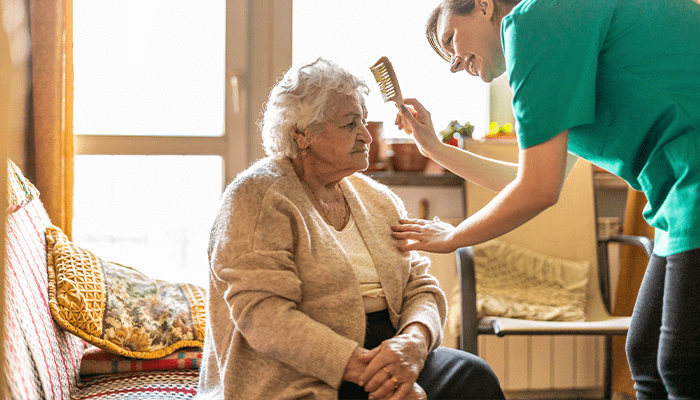
Reducing Liability Risks in Dementia Patient Care Insights for Healthcare Professionals
Healthcare professionals, particularly those involved in long-term care and risk management within memory care settings, must navigate the complex terrain of dementia patient behavior management with finesse and empathy.
Dementia patients often exhibit a spectrum of behaviors that can challenge care providers. In our recent webinar, "Dementia Care: Managing Residents with Behaviors," attendees received valuable insights aiming to enhance residents' quality of life.
The use of antipsychotic medications has been a pressing issue in dementia care. These medicines are approved for psychiatric disorders like schizophrenia and bipolar disorder, but their off-label use for behavior management in seniors can be dangerous. Documenting each step, from the initial behavior that warrants medication to the ongoing evaluation of its efficacy and side effects, provides a clear protocol that can minimize adverse outcomes.
Non-pharmacological interventions can play a pivotal role, such as ensuring a patient's environment is conducive to addressing triggers like pain, discomfort, or boredom. Changing communication strategies, such as avoiding the word 'no' or finding the root cause of behaviors, can drastically improve the situation. An agitated patient might need a quieter environment, or someone resisting a shower might require a different approach, such as being offered a comforting activity first.
Documentation and observation are also crucial. Being vigilant about patients' repetitive behaviors and their triggers can lead to early intervention and reduce the need for pharmacological remedies. Staff training is essential, as well as creating a person-centered care environment that considers each patient's unique history and personality.
Developing comprehensive care protocols beyond pharmacological interventions is key from an insurance and risk management context. An emphasis on individualized, non-pharmacological strategies to mitigate risks and enhance the quality of life for dementia patients is a testament to the evolving landscape of patient-centered care. By harnessing behavior documentation, personalized interventions, and continuous staff training, facilities not only improve the living conditions of residents but also mitigate liability risks and enhance compliance with regulatory standards.
The AssuredPartners Senior Living team is committed to helping senior living communities navigate these challenges and protect their organizations and residents from unnecessary risk. For more information, review our webinar recordings or contact AssuredPartners Senior Living.
Featured News & Insights

The next five years will be critical for senior living and nursing home providers. Shifts in health system consolidation, CMS programs, and hospital partnerships are already reshaping how skilled...

Watch the Webinar Replay In this webinar, we’ll explore the structural changes that are adversely impacting nursing home skilled care revenues. This session will briefly touch on the impact of ACO...

If your senior care facility is struggling with survey performance, you may already be on CMS's radar. The Special Focus Facility (SFF) designation is more than just a label. It's a warning with real...